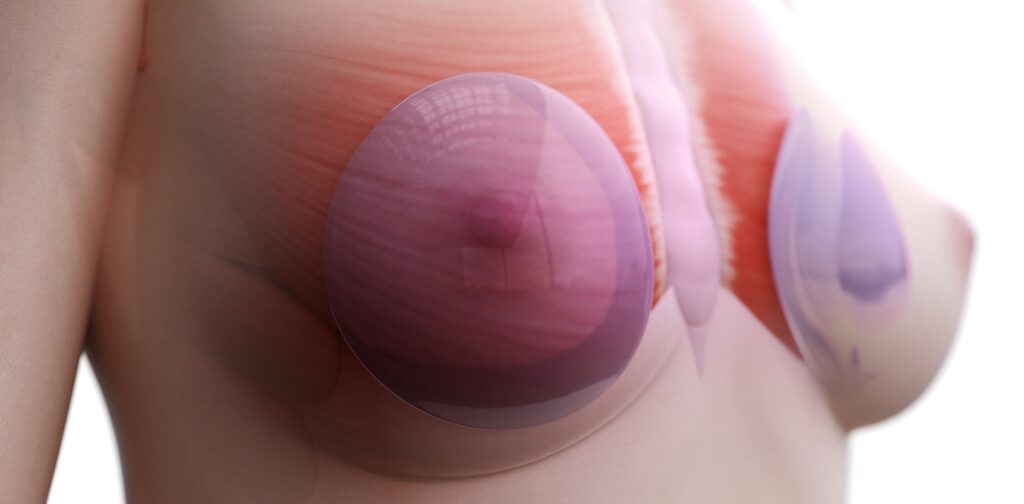
Understanding Types of Breast Cancer and Treatment Options
Breast cancer is the most common cancer among Singaporean women, accounting for 30% of all female cancers. Understanding different types of breast cancer and the available treatment options is crucial for effective management and improving patient outcomes.

The International Specialist Clinic aim to empower patients and their families with the knowledge needed to take control of their health and make informed decisions. This article provides a comprehensive overview of the different types of breast cancer and types of treatment for breast cancer.
Who Is at Risk of Breast Cancer
Breast cancer affects certain demographics at a higher risk. The risk increases with age, particularly after the age of 50. Women with family history and genetic predispositions, such as BRCA1 and BRCA2 mutations, also increase the likelihood of developing breast cancer. Additionally, individuals with a personal history of breast cancer or benign breast conditions are at a heightened risk.
Smoking and Aortic Aneurysm

- High intake of processed foods and saturated fats
- Lack of regular exercise and a sedentary lifestyle
- Excessive alcohol intake
- Obesity after menopause due to increased estrogen production from fatty tissue
- Smoking in premenopausal women.
- Prolonged use of Hormone Replacement Therapy (HRT)
Who Is at Risk of Breast Cancer
Breast cancer is an uncontrolled growth of abnormal cells within the breast tissue.
Four Main Types of Breast Cancer
1. In situ breast cancer refers to noninvasive cancers in which abnormal cells remain confined within the milk ducts (ductal carcinoma in situ, or DCIS) or lobules (lobular carcinoma in situ, or LCIS) of the breast.
2. Invasive Ductal Carcinoma (IDC) is the most prevalent type, accounting for roughly 70-80% of all invasive breast cancers. It originates within the milk ducts and may spread to surrounding tissues.
3. Invasive Lobular Carcinoma (ILC) accounts for 10-15% of invasive breast cancers. It starts in the milk-producing lobules and can invade nearby tissues.
4. Triple-Negative Breast Cancer (TNBC) is an aggressive form of breast cancer that tests negative for three common hormone receptors (estrogen, progesterone, and HER2). Triple-negative breast cancer is less frequent but necessitates more intensive treatment regimens.
Detecting cancers early makes it easier to treat and has higher cure rates. Regular clinical breast exams and mammograms play a vital role in early detection. These screenings are tailored to individual circumstances, considering age and family history.
If you’re seeking a qualified breast cancer specialist, our team at International Specialist Clinic is here to support you. Our board-certified breast surgeon, Dr Andrew Lee, specialises in oncoplastic surgery and is known for his patient-centred approach.
You are not alone in this journey. Dr Andrew Lee is committed to providing comprehensive diagnostic services and personalised care throughout your entire experience.

Dr Andrew Lee
BREAST SPECIALIST & SURGEON
MB ChB MSc MS MD FRCSEd FAMS
- Over 15 years of medical experience
- Breast surgeon with a subspeciality in oncoplastic breast surgery
- Obtained Master of Surgery degree (MS) in Oncoplastic Breast Surgery from the University of East Anglia, England
- Received the Singapore Health Quality Service Award (Star) and the Eastern Health Alliance Caring Award (Gold & Silver) for quality patient care.
- Specialised interests in breast cancer treatment, including cryoablation electrotherapy and intraoperative radiotherapy.
Following a thorough diagnosis, Dr Andrew Lee will work with you to develop a personalised treatment plan tailored to the specific cancer stage, characteristics, and personal preferences.
This plan may include one or more of the following options.
Surgery
As a skilled oncoplastic surgeon, Dr. Lee prioritises achieving optimal oncological outcomes while preserving a natural aesthetic.
Depending on the type and extent of your cancer, surgical options may include
- Lumpectomy or the removal of the tumour and a small margin of surrounding tissue
- Mastectomy or the complete removal of the entire breast
- Reconstructive surgery to restore the appearance of the breast
Our breast specialist will discuss all available surgical approaches with you and guide you in selecting the most appropriate option for your individual situation.
Breast Cancer Therapy
Dr Andrew Lee works with other specialists, such as radiation oncologists, medical oncologists and pathologists, to ensure a comprehensive and coordinated treatment approach.
- Chemotherapy: This involves using drugs to kill cancer cells or stop them from growing. It can be given before surgery (neoadjuvant therapy) to shrink tumours or after surgery (adjuvant therapy) to eliminate remaining cancer cells.
- Radiation Therapy: Different types of radiation therapy for breast cancer include external beam radiation and brachytherapy. These treatments use high-energy rays to target and destroy cancer cells.
- Hormonal Therapy: For hormone receptor-positive breast cancers, treatments that block hormones or lower hormone levels in the body can be effective.
- Targeted Therapy: These drugs target specific molecules involved in cancer growth and spread, such as HER2-positive breast cancers.
Key Takeaways: Early Detection Empowers Your Breast Cancer Journey
Taking action with early detection empowers women to gain control of their health and experience a smoother recovery journey. Early detection allows our doctor to identify a wider range of treatment options for you, leading to less invasive procedures like lumpectomy.
Every step towards early detection and informed treatment is a step towards regaining control. Dr Andrew Lee and our team at the International Specialist Clinic are dedicated to providing you with support and compassionate care throughout your journey.
